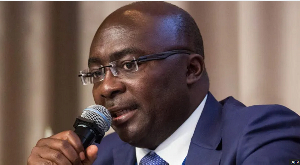As part of its revamping measures, the Bulk Oil Storage and Transportation Company (BOST) has begun a complete automation of its systems to bring to the barest minimum human interference in the fuel-delivery process.
Product losses, officials of the company say, have been one of their major challenges over the years -- a situation which has contributed greatly to the company’s bad books.
The company has outdoored a new initiative called BOST 24, which means it will operate 24 hours a day and seven days a week in a bid to achieve key targets it has set for itself.
Some of these targets include resuming the use of a forsaken pipeline to deliver fuel to northern Ghana and improve delivery of LPG among others.
The company’s network of pipelines linking the Accra Plains storage facility to Mami Water and Akosombo as well as Buipe and Bolgatanga have been out of service without a drop of oil passing through them for the past seven years. Tankers have since been delivering fuel up north, with an increased risk of losses due to siphoning and diversion of fuel.
“As part of BOST 24, we are automating every system that we have. Before BOST 24, we were operating semi-manual, semi-automated. That resulted in a lot of product losses,” Salifu Nat Acheampong, Communications Manager, told journalists on a tour of the company’s Akosombo and Mame Water depots.
“We want to curtail the product losses, at least to the barest minimum. To do that, we need to eliminate human interference. We are restoring all our flow metres,” he said.
“The upgrade, expected to be completed by the end of the year, involves automation of all BOST operations to reduce human involvement in all levels of BOST operations,” a release from the company said.
“Flow metres are also being installed as a means of preventing product losses, while high- capacity pumps are also being fixed to help in faster and more efficient product delivery.”
The new management of the company which took over in October 2012, led by Kwame Awuah-Darko, has announced “structural change” measures to make the company not only capable of servicing the Ghanaian market but other markets like Burkina Faso in the sub-region.
Part of the measures has been to outsource the management and operation of its fuel depots to a Nigerian company called TSL, a situation which has not gone down well with Bulk Oil Distribution Companies (BDCs) which say they can do the job.
The matter is currently before court, but BOST’s management says it is keen on seeing a turnaround for the company.
Speaking to journalists in April, Mr. Awuah-Darko said “BOST was in a comatose state when we took over...there was a systemic failure, leading to losses.
“All BOST facilities operationally have become anaemic, suffering from ineffective inventory management, poor maintenance of existing facilities, high-risk health, poor safety and environmental management, and low morale amongst staff.”
He assured, however, that through a “comprehensive” structural change programme his team will ensure that by the end of 2014 the company will be operating at 70-75 percent of its capacity.
Aside its mandate to develop, maintain and operate infrastructure for the storage and distribution of petroleum products across the country, BOST is also supposed to hold what is called a “national strategic reserve” of oil that should last for at least six weeks -- so that in case Ghana woke up one day and did not get any imports, it could rely on the reserve for that long.
BOST has however failed in this endeavour, and its new management says it is determined to turn the situation around.
The company has a 400,000 metric-tonne fuel capacity, five oil terminals and a network of pipelines across the country.
Business News of Friday, 1 August 2014
Source: B&FT
BOST automates systems to curtail fuel losses

Entertainment















